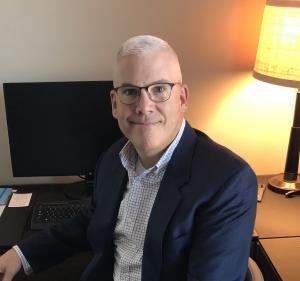In my last blog, I discussed the range of new duties and responsibilities for governing boards of colleges and independent schools in this new economic era for all sectors of the education industry. I opined that board members in particular must start to think seriously about – and actively discuss – radical possibilities for their institutions, including the possibility of merging or closing, even for those institutions that may consider themselves to be financially healthy. Failure to have these discussions and establish key metrics for decision-making is, in my opinion, a mistake.
Several colleagues wrote to me after reading the blog and asked excellent questions, including, “What are simple ways to test the financial health of our school?” And, “Has the concept of fiduciary duty changed fundamentally for school leaders?” These questions led me to do more thinking about these topics and offer some thoughts.
Financial Health – Quick Tips to Assess
There are simple ways to quickly assess the current financial health of any institution. A few minutes spent with the last two years’ financial statements and the most current IRS Form 990 can provide all of the information needed to determine the current financial state of an institution. Assessing the longer-term financial sustainability of a school, however, is more complicated and needs to consider operating and non-operating revenues, expenses and risks, as well as often-forgotten larger needs like deferred maintenance, IT systems and infrastructure needs, and the impact of healthcare trends.
In the world of higher education, institutions are now graded by external organizations, e.g., Forbes, on their financial health.[1] The metrics used are instructive and directly applicable to secondary and independent schools, as well. If your school operates as a “cyclical commodity businesses with intense price competition,” then you are likely to receive a poor grade for financial fitness and face challenging headwinds in the future.
Here are a few quick data points that can help assess the level of financial fitness for a school:
- Endowment per Student – does your school have more than $250,000 in endowed funds per student FTE (Forbes gives full credit only to those schools with more than $337,980 per student)? If not, your school may have longer-term financial challenges.
- Discount Rate – is your “all in” rate greater than 35%? If so, without non-operating revenue to make up the difference, your school may be in longer-term trouble.
- Deficit Ratio – does your school have an operating deficit ratio greater than 10% (of revenues)? In other words, are you generating 10% less in annual operating revenue than your fixed expenses? Without sustainable, recurring and annual non-operating revenue to fill that gap, the long-term horizon may be challenging.
Fiduciary Duty – How Has it Changed?
The concept of “fiduciary duty” has not changed fundamentally but is often misunderstood and has taken on new meaning in this new era for schools. Many incorrectly believe that the term “fiduciary” relates only to money and resources and applies only to those who oversee budgets and endowments for institutions. The term does not only apply to CEOs, CFOs and Controllers who may directly manage resources for a school, but to all employees and board members.
More broadly, a fiduciary duty is an obligation to act in the best interest of another party, in this context, a school or institution, where there is a legal duty owed based on one’s employment or board membership. Every employee, board member and senior leader owes some level of fiduciary duty (or duties) to the institution for which they work or serve, depending on their role and relationship with the institution. Those with a fiduciary duty are, in the eyes of the law, held to a high standard of honesty and ethical behavior to act in the best interests of the institution.
There are three primary responsibilities with a fiduciary duty: (1) duty of care, (2) duty of loyalty and (3) duty of obedience. Many also add a duty of inquiry, which may be encompassed by the duties of care and loyalty. Jurisdictions may differ in how these duties are interpreted under state and common law, but these are the foundational principles that have and still apply.
So, what has changed? The external, financial, legal and regulatory environments have changed considerably in the past 10 years for schools. In 2012, Bain Consulting published a white paper called “The Financially Sustainable University,” which predicted the worsening of issues affecting education as an industry and applies as well to secondary education. The report discussed an “education bubble” that had “reached a fever pitch” based upon tuition increases beyond the rate of inflation, student debt and other factors that require innovation and change.[2] These changes, along with a more complicated risk and legal environment (e.g., statutes of limitations changes, new laws covering hate crimes, sexual assault and consent, etc.), are requiring board members and senior leaders to shift their focus on areas that may not have been on the radar screen years ago. Thus, while the fundamental principles of fiduciary duty have not changed, the range of issues that school leaders must be aware of, address, manage and mitigate have changed considerably.
Management – School Leaders’ Key Duty: Communication
My last blog outlined a set of duties that boards have to fulfill their duties of inquiry and to investigate that extend deeper than what previously may have been considered appropriate and prudent. Senior leaders and management work for the institution but must support the board in their duties and work with the board to meet these legal duties in a time of rapid environmental change.
Boards, senior leaders and management have a shared duty to develop robust planning and reporting for both short- and longer-term organizational health, which in this era may include taking extreme measures as noted above. While is an honor to serve a mission-focused institution and can be personally rewarding, the work of senior leaders and management is growing and become much more challenging in these turbulent times for education.
The key to success is continual communication between boards and senior management to constantly assess the internal and external environments. A board member of a mid-Atlantic independent school noted to me this week that “he attends board meetings quarterly and helps as much as he can during the meetings, and then goes back to his life and doesn’t hear much from the school until the next meeting.”
If this is the dynamic at your school, it may be helpful to do a communications assessment between management and the board to determine whether information is flowing in both directions in a continuous way. While many senior leaders want to keep board members away from the operational details of running a school, with so many headwinds and challenges facing the industry, it is important to keep board members fully apprised of issues on campus (financial and other) to enable them to fulfill their legal fiduciary duties.
 About David Hanson
About David Hanson
Prior to founding Winthrop & Associates, LLC, David spent 20 years serving academic and non-profit organizations, including serving in dual positions (chief financial officer and chief risk officer) for Phillips Exeter Academy, where he had responsibility for a $100M annual budget and all operating functions, as well as risk management. Prior to Exeter, David was the vice president (chief financial officer) and then senior vice president (chief operating officer) for Virginia Commonwealth University. He began his career in academic leadership at Emory University, where he spent ten years in a variety of roles leading to his appointment to dual positions as associate vice president for administration and special assistant to the executive vice president. David began his professional career practicing law.
David holds a bachelor’s degree in marketing, a Juris Doctorate (with highest honors), two master’s degrees (education and business), and a doctorate in higher education management (focused on financial resource allocation and governance). David is a member of Beta Gamma Sigma and Phi Kappa Phi academic honor societies and is a double alumnus of the Fulbright Specialist Program, having served institutions in Pakistan and Scotland.
David can be reached via email at david@winthropassociates.com.
[1] See Forbes Online (November 27, 2019);
[2] The Financially Sustainable University© 2012 Bain & Company, Inc., by J. Denneen and T. Dretler.
Found value in this article? Read David’s previous post here.


